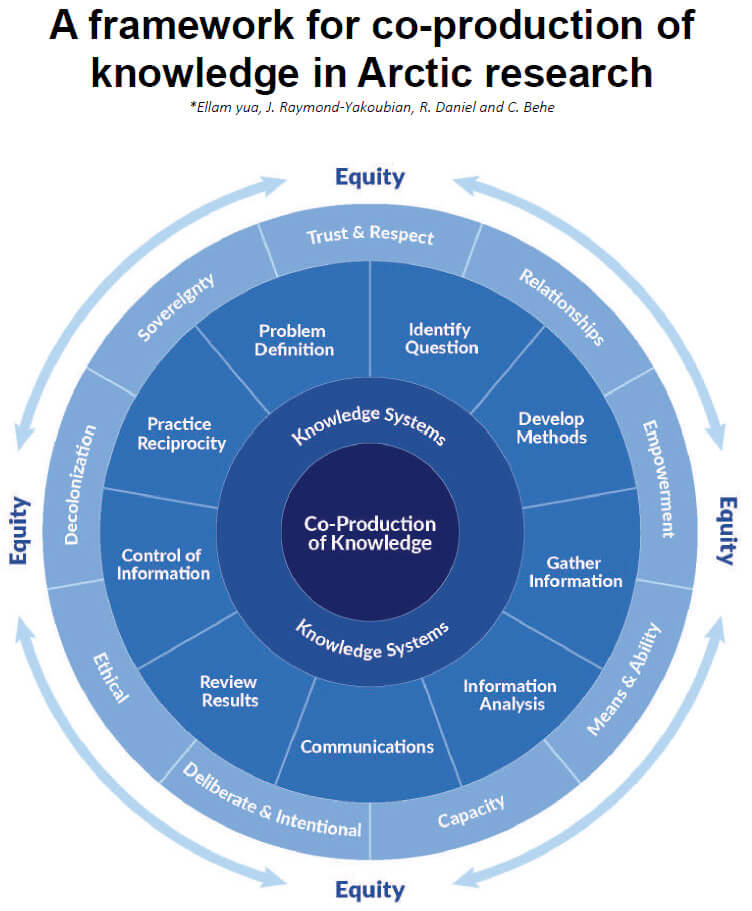Stewardship
Each of the communities of the Bering Strait region maintain their own understandings and relationships to the research community. The Katirvik Cultural Center’s role in ensuring research sovereignty is to provide stewardship of cultural resources through protection, partnership with communities in the curation of displays in our gallery, and ensuring community voice in the development of our programming. The KCC advocates for Indigenous community informed consent for research coming into communities, and emphasizes the importance of partnership, true collaboration, co-creation of knowledge and mutual ownership of work-product. Click here to learn more about Kawerak’s position on knowledge sovereignty and Indigenization of knowledge.
Additionally, please see Kawerak Social Science’s recent workshop on research processes in Indigenous communities.
Several tribes in the region maintain Cultural and Intellectual Property Rights laws and research permitting processes. For more information, please contact each Tribal office directly. If you are interested in learning more or have questions about research in Tribal communities in the Bering Strait Region, please contact the Katirvik Cultural Center at [email protected]
Research Collaboration and Co-Creation of Knowledge
Knowledge Sovereignty
Kawerak’s Social Science Program collaborates with Tribes and communities in the Bering Strait region to conduct research on topics such as traditional knowledge of subsistence resources, subsistence practices, environmental change, and human-environment and human-animal relationships. Kawerak Social Science advocates for meaningful partnership in research, knowledge co-creation, and conducts workshops with researchers and the Tribes of the region. Click here for more information on Kawerak’s Knowledge Sovereignty project.
Click here for more information regarding Kawerak’s Framework for the Co-Production of Knowledge.

